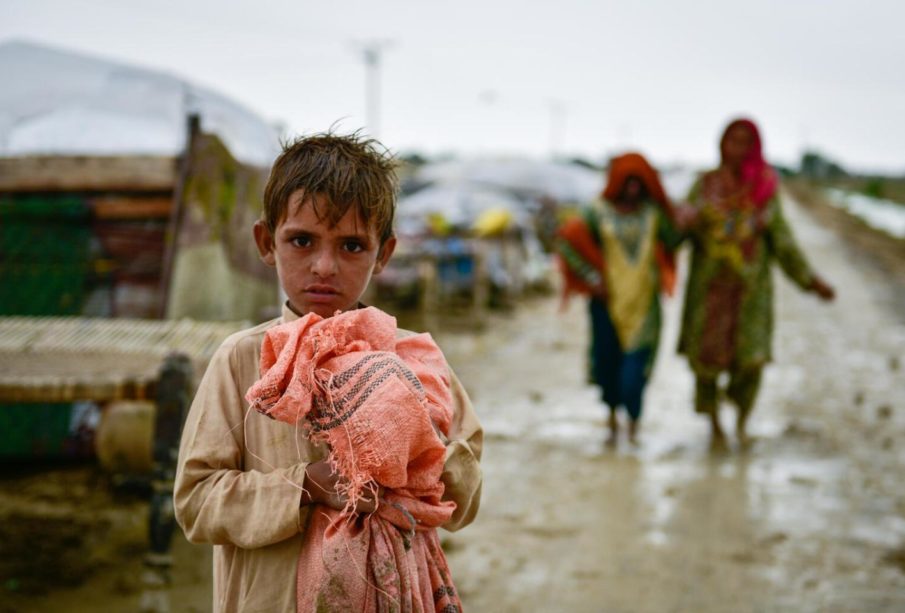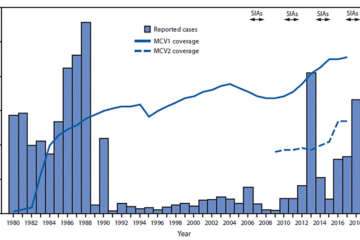Devastating floods in Pakistan – UNICEF

UNICEF is on the ground working with partners to help children and families.
30 August 2022
Torrential monsoon rains have triggered the most severe flooding in Pakistan’s recent history, washing away villages and leaving more than three million children in need of humanitarian assistance and at increased risk of waterborne diseases, drowning and malnutrition.
More than 1,100 people, including over 350 children, have lost their lives. Hundreds of thousands of homes have been destroyed, while many public health facilities, water systems and schools have been destroyed or damaged. With no signs of the rain ceasing, the number of affected people is expected to continue to grow.
UNICEF is responding with the Government and partners, helping to deliver safe drinking water; lifesaving medical supplies; therapeutic food supplies; and hygiene kits to children and families. We are also establishing temporary learning centres and supporting the protection and psychosocial wellbeing of children affected by these devastating floods.
But much more is needed to ensure we can reach all families displaced by floods and help them overcome this climate disaster.
Around 33 million people, including approximately 16 million children, have been affected by this year’s heavy monsoon rains in Pakistan, which have brought devastating rains, floods and landslides. Some major rivers have breached their banks and dams have overflowed, destroying homes, farms and critical infrastructure including roads, bridges, schools, hospitals and public health facilities.
There are reports of significant damage to education infrastructure with thousands of schools damaged or destroyed. After two years of pandemic school closures in the last few years, children once again risk further disruption to their learning, in areas where one-third of girls and boys were already out-of-school before the crisis. Meanwhile, cases of diarrhoea and water-borne diseases, respiratory infection, and skin diseases have already been reported.
The perilous humanitarian situation is expected to continue to worsen in the days and weeks ahead as heavy rains continue in regions already underwater. Many of the hardest-hit areas are amongst the most vulnerable in Pakistan, where children already suffer from high rates of malnutrition, and poor access to water and sanitation. Most of the affected districts have seen public health facilities damaged, medicines destroyed by the floods, and many health workers displaced from their homes. The risk of waterborne diseases is high, including cholera.
Climate-related crises will not affect everyone equally. Children will suffer more than adults, with those in the poorest communities bearing the biggest burden.
UNICEF is providing life-saving medical equipment, essential medicines, vaccines and safe delivery kits for people who have lost their homes and now live out in the open.
In these difficult times, your support can save lives. Your contribution can help UNICEF reach more children and families with critical, urgent and life-saving supplies.
UNICEF is on the ground before, during, and after emergencies, working to reach children and families with lifesaving aid and long-term assistance. At the onset of an emergency – whether it’s a conflict or a natural disaster – UNICEF is capable of delivering pre-positioned life-saving supplies within 72 hours from a network of supply hubs around the world. Pre-positioned supplies are essential items that are ready to be deployed from strategic locations at any moment, to bring timely relief to an emergency anywhere in the world.
But the work does not stop at delivery. UNICEF works with partners to ensure assistance continues to have a positive impact in the long term, so that children can hope to enjoy healthy lives and fulfill their dreams.
In emergencies, children suffer first, and most.
When a sudden onset emergency such as an earthquake or hurricane strikes, it’s children who suffer first and suffer most. As well as the immediate, devastating impacts – loss of life, destruction of homes and communities – the chaos of an emergency can threaten access to food, shelter and social support. Children and mothers are often cut off from basic and essential care, including life-saving medicines and supplies. The risk of malnutrition soars. Shattered infrastructure means families can lose access to adequate sanitation and hygiene facilities, leaving children even more susceptible to water-borne diseases. The destruction of schools means children can lose safety and routine. Without access to education, they risk losing their futures.
Read more about UNICEF’s work in emergencies and its latest humanitarian appeal to support conflict- and disaster-affected children with access to water, sanitation, nutrition, education, health and protection services.











